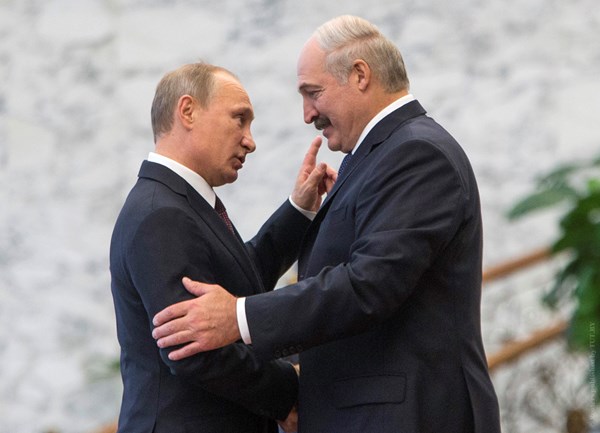Putin gives Lukashenko $1.5 billion loan
Russia will provide Belarus with a loan of $1.5 billion, Russian President Vladimir Putin said during a meeting with Alexander Lukashenko in Sochi.
The details of the new loan are being worked out by the finance ministries of the two countries, Putin said, without specifying from which sources the funds are planned to be allocated.
"Russia remains committed to all our agreements, including the agreements of the Treaty on the Union State and the Collective Security Treaty Organization. We consider Belarus as our closest ally and, of course, as I have repeatedly told you in telephone conversations, we will fulfill all our commitments," said Putin.
He added that these commitments are mutual and should be fulfilled "regardless of who is in power at the moment."
Russia's position on the protests, which have been going on in Belarus for more than a month, remains unchanged, Putin stressed: "We are in favor of the Belarusians themselves, without any prompts and pressure from outside, in a calm mode and dialogue with each other, understanding this situation, and coming to a common decision on how to build their work."
The new Russian loan to the Belarusian authorities will bring Minsk’s total debt to Moscow to $10 billion. Belarus was supposed to repay $1 billion of this amount by the end of the year but received a reprieve from Russia.
The currency is badly needed by the Belarusian Central Bank, which in August spent $1.4 billion from the gold and currency reserves to repay the country’s debt and slow the devaluation of the Belarusian ruble, which has lost 20% since the beginning of the year, and in August reached historical lows against both the dollar and the euro.
As of September 1, the reserves of the National Bank of Belarus remained 7.9 billion dollars, of which only half is tangible foreign currency, and the rest is gold, IMF borrowing rights and other low-liquidity assets.
The gross volume of the Belarus foreign currency reserves covers only 2.5 months of imports, which is lower than the IMF's minimum recommendation for three months.
Minsk negotiated with the IMF $900 million of emergency loan, but in vain. Last week, the IMF refused aid citing "insurmountable differences" about the methods to lead the the country's economy out of the crisis.
At the same , it was reported that the Russian government instructed the largest state banks, including VEB, Sberbank and VTB, to ensure a stable flow of ruble loans to the banking system of Belarus, which was in a state of full-fledged crisis after the population began to buy up dollars and euros en masse and withdrew more than $600 million of foreign currency deposits for August.
